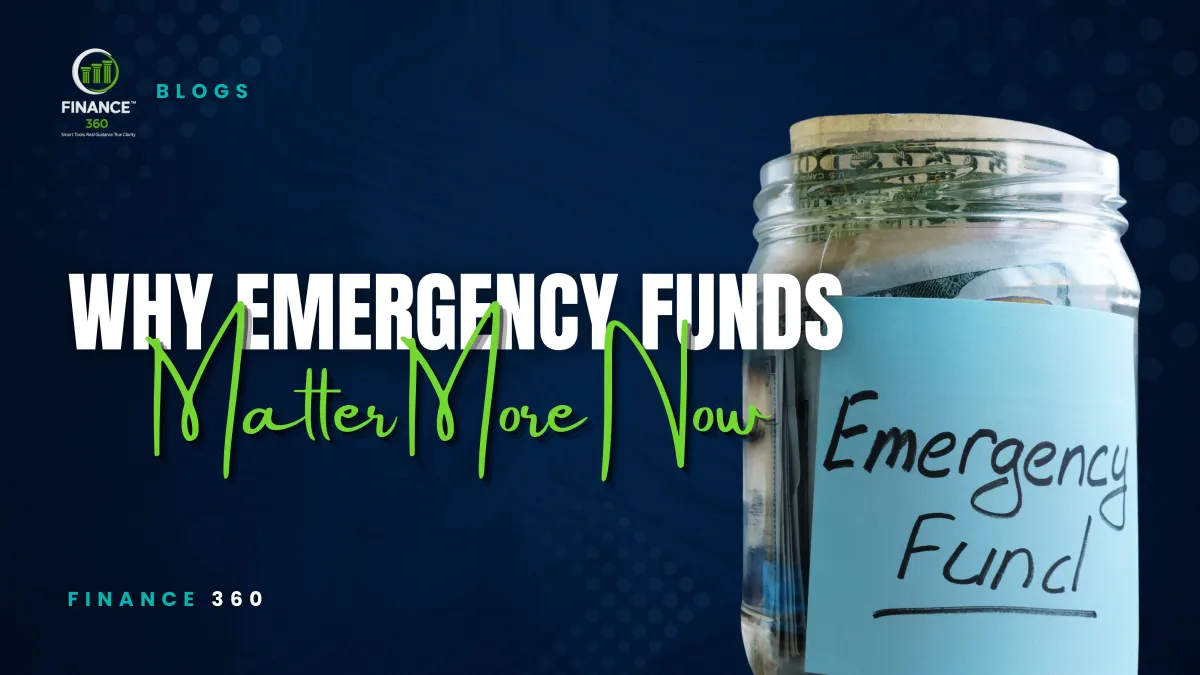
Why Emergency Funds Matter More Than Ever in 2025
Let’s be real. Life doesn’t wait. The rent’s due. It’s never when you’re ready. It’s always when rent is due, the fridge is empty, and your kid just outgrew their sneakers. Groceries are higher than ever. Your car’s making that weird sound again, and of course, the air conditioner picks July to stop working.
We’ve all been there. And if you’ve ever had to swipe a credit card just to stay afloat, you know the stress that follows.
Why Emergency Funds Matter More Than Ever
Here’s the tough truth: According to Bankrate, 59% of Americans couldn’t handle a $1,000 emergency without going into debt. And nearly 40% say even $400 would throw them off financially as per CBS News.
This isn’t a budgeting issue but a survival issue. Inflation, rising rent, and medical costs don’t wait until you’re “ready.” The unexpected shows up whenever it wants, and it hits harder when you don’t have a safety net.
That’s why emergency funds matter. They’re not just about saving money. They’re about buying peace of mind.
How Much Should You Really Have Saved?

Think of it like this:
A good starting point is around $2,000. It won’t cover everything, but it’s enough to keep a flat tire or medical bill from throwing off your whole month.
Most experts recommend saving enough to cover 3–6 months of essential expenses such as rent, food, bills, transportation.
If your income isn’t steady, or you’ve got kids or dependents, it’s smart to aim higher. 6 to 12 months gives you more breathing room.
In today’s economy, that might mean having somewhere between $20,000 and $35,000 tucked away. Sounds like a lot? It is. But most people don’t save that overnight. They build it little by little, $50 here, $100 there, until that fund becomes a real safety net.
How Do You Actually Build One?

Saving for emergencies doesn’t have to be overwhelming. Start small, stay consistent, and keep it simple:
Pick a number you can stick to, even $25 or $50 a week is a win
Automate it so the money moves into savings without you thinking about it
Use extras like tax refunds, bonuses, or side hustle income to grow your fund faster
Don’t stress if you use it. That’s the whole point. Just refill it when you can.
The goal isn’t to be perfect. It’s to be prepared. And every dollar you set aside gets you closer. Life’s full of surprises. When life throws a curveball, your emergency fund is the glove. It gives you options. It keeps you calm. And it reminds you: you’ve got this.
And honestly? That kind of peace is worth every dollar. You don’t need to be rich to have financial peace. You just need a plan, and the courage to start.
Take Control with Finance360

You don’t have to do this money thing solo. If saving feels impossible, bills are sneaking up, or you’re stuck in the boring budget spiral, Finance360’s got your back.
Think of us as your on-demand money squad:
Real experts, real fast: Connect with advisors, tax pros, estate attorneys via call, chat, or even IRL when you need backup
7 pillars, total coverage: From saving and budgeting to retirement, insurance, debt, taxes, healthcare, and estate planning
Tools that actually help: Goal-based savings, easy expense tracking, personalized reports, ebooks, worksheets, and a 24/7 Care Team so you're never in the dark
This isn't just another app. It's like having a financial coach, a calendar, a smarter wallet, and a wellness guide, all in your pocket.
"Start your financial journey today with Finance 360!"
